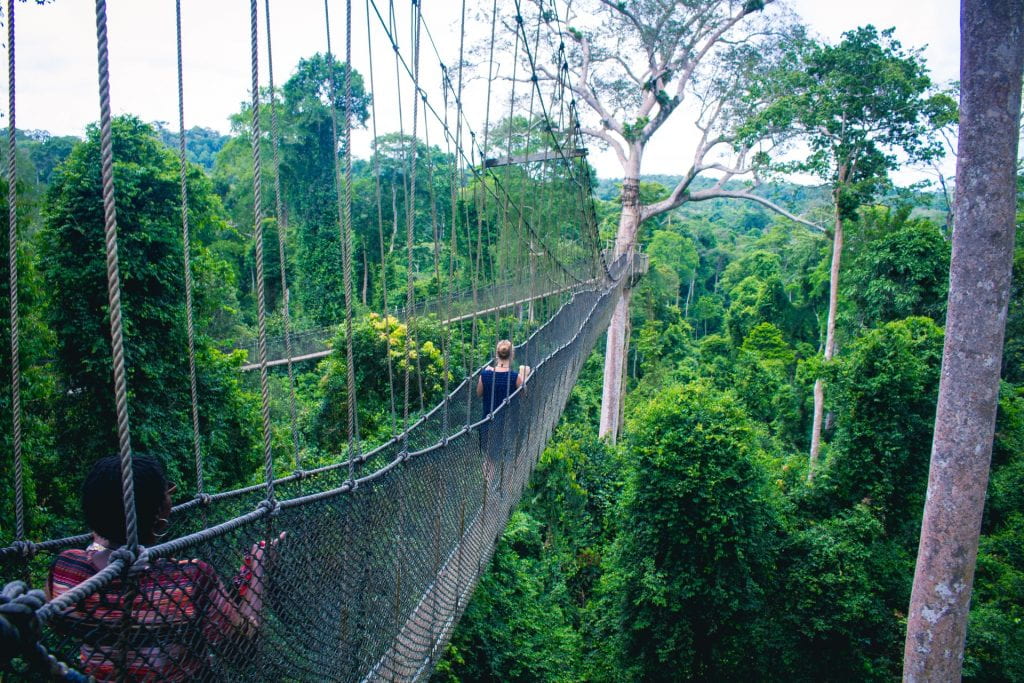
Bridge in Kakum Canopy, Cape Coast, Ghana
Professor Marina Novelli, Academic Lead for Responsible Futures, has joined forces with the Ghana Tourism Authority (GTA) to establish the Building Bridges for Sustainable Tourism in Africa (BBSTA) Initiative.
Born out of a shared commitment to proactively play a part in the recovery of tourism in Africa, the initiative has now evolved into the unprecedented collaboration of over 40 key stakeholders from Africa and beyond.
BBSTA’s purpose is to advocate for proactive action-based collaborations and initiatives which will inform policy and practice for sustainable tourism in Africa and its agenda is the result of a co-constructed process responding to two key questions:
- What now (during COVID19)?
- What next (post-COVID19)?
Four key areas of intervention BBSTA’s have been so far agreed, which are:
1. Digitisation
2. Regional collaboration
3. Research and training
4. Advocacy and PR
Working closely with GTA CEO Akwasi Agyeman, Professor Novelli is part of the BBSTA Advocacy Task Force with a strong belief that creative solutions are needed to address this crisis.
According to UNWTO (2020), it is expected that the crisis could lead to an annual decline of between 60% and 80% when compared with 2019 figures. For most countries, travel restrictions halted tourism in February 2020. Nations, global tourism agencies, academia, destination markets and tourism businesses are collaborating to try and frame this crisis, analyse its impacts and forecast what the ‘new normal’ will be for tourism.
Professor Novelli said:
“The impact on the tourism industry has been significant; the sector is among the worst affected by the COVID-19 pandemic. Millions of livelihoods are at risk and there is a clear threat to progress made in advancing the Sustainable Development Goals (SDGs). We are committed to working together to take pragmatic steps towards recovery.”
For more information:
To find out more about the BBSTA Initiative and get involved, send an email to Akwasi Agyeman at: aagyeman@ghana.travel and Professor Marina Novelli at: M.Novelli@brighton.ac.uk.



